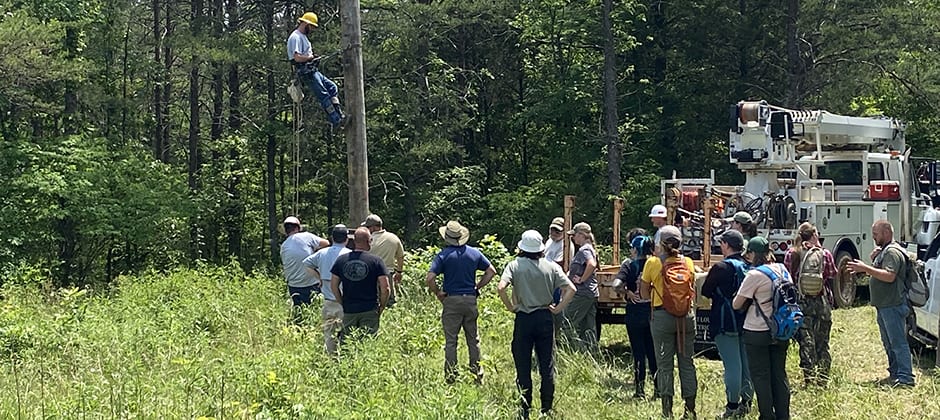Share this article
SWAP program brings diverse students to the wild
The Student Wildlands Adventure Program recently completed its fifth annual event. Twelve students from the western United States and Canada were selected to participate on a trip to the Southern Appalachian mountains to learn about wildlife management in an area that is often classified as a temperate rain forest, a vastly different environment that what they are normally exposed to.
Students received hands-on experiences ranging from working up a black bear (Ursus americanus) with biologists from Great Smoky Mountains National Park, erecting Brandenbark structures for endangered Indiana bats, snorkeling the Conasauga River looking at biodiversity, assisting with the collection and weighing of fish at the Tellico Fish Hatchery and learning about endangered species propagation at the Tennessee Aquarium Conservation Institute.
One student shared on her Facebook page, “This trip has truly opened my eyes to just some of the endless career paths in wildlife and possibly even has provided light to my future career choice as a wildlife biologist. Thank you to all the amazing biologists and other professionals for opening your knowledge to us!”
SWAP is a nonprofit organization started by Certified Wildlife Biologists Daryl Ratajczak and Robert Brewer. The event typically takes 12 to 15 wildlife students from underserved communities and flies them across the country to experience different ecosystems and engage them in hands-on learning experiences. Field trips are typically led by state and federal biologists along with other professionals in the wildlife field.
Since its inception in 2017, SWAP has provided life-changing experiences for 75 students from 21 different universities. This year, the students were comprised primarily of women and hailed from seven states and one province. Half of the students were of Native American descent and represented 10 different colleges and universities.
Inspiring young, diverse minds to pursue a career in wildlife management is something truly worth applauding. Introducing young students from varied backgrounds into wildlife is essential for maximizing productivity within our field. As Dan Riskin and Carolyn Finney pointed out when they launched the 2021 TWS conference, diversity is not only good for wildlife. It is great for wildlife management.
Header Image: Participants in the 2022 Student Wildlands Adventure Program learn about Indiana bat (Myotis sodalis) habitat and installing roost structures with biologists from the U.S. Fish and Wildlife Service, U.S. Forest Service and the Tennessee Wildlife Resources Agency. Credit: Student Wildlands Adventure Program








